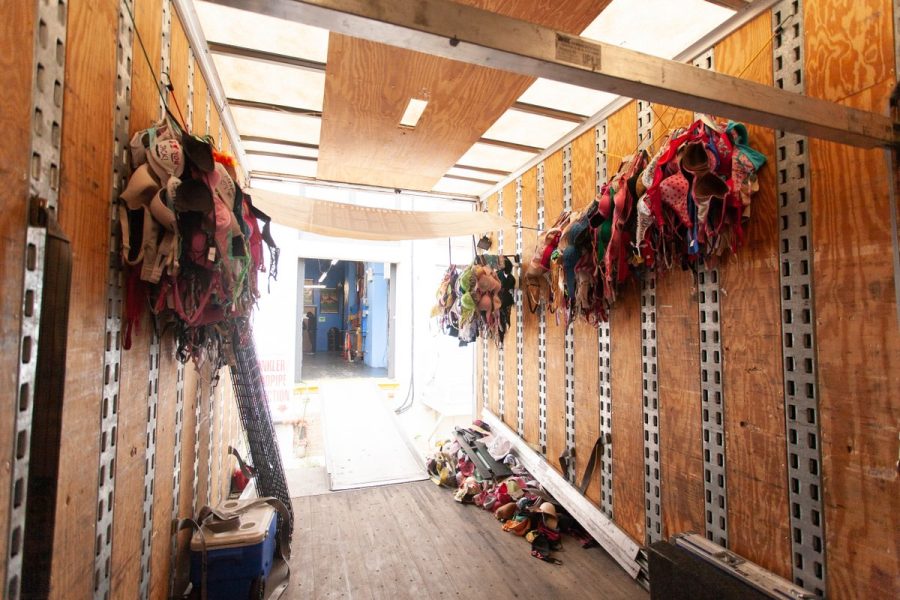Sexual misconduct denial brings victim rapport to an All Time Low
Photo courtesy of @elmakias on Twitter
One of the bra collections that All Time Low had on tour
In recent weeks, voices seeking to speak out against the actions of pop-punk band All Time Low (ATL) have gained increasing traction for attention online. As a result, the band elected to speak out in a way that clearly exemplifies the issue surrounding the invalidation of experiences faced by assault victims.
The eruption began with a video posted on TikTok, during which a young woman made claims that a band had invited her onto their tour bus when she was just 13, offered her alcohol and attempted to take her bra for their infamous collection. The band name was never explicitly included in her narrative; however, her mention of the collection of bras belonging to underage girls on tours became a dead giveaway for fans interacting with the online video.
While this recent TikTok brought the band’s activity back to the surface, allegations against ATL have been circulating for years, with young women speaking up online about harassment and assault, primarily when they were underaged. Across the band’s allegations, lead guitarist Jack Barakat is the only member whose name has been explicitly brought up. The other members were often identified as onlookers who did not intervene.
One 2017 tweet said, “when I was 14, Jack Barakat told me that my boobs were yummy.” While never confirmed, there are currently 97 assault claims against ATL circulating the internet.
For weeks, All Time Low continued to promote their tour with no mention of allegations as it took the band upwards of three weeks after allegations went viral to even acknowledge the issue.
On Oct. 25 an extensive letter was posted on behalf of all four members on ATL’s official social media. Their statement said, “we have to state with outright certainty, that what is being said about us is completely and utterly false,” which was off-putting for many, especially given the breadth of claims circulating the internet.
The message continued, “It is difficult and disheartening to have to make this statement knowing that the allegations against our camp are completely unfounded and false, but at this point it is of the utmost importance to us that you know we hear you, we stand with victims, and we stand collectively for truth.”
The inconsistency in their closing statement is appalling, and is creating traction for the larger issue of powerful people being able to manipulate the narrative to invalidate the experiences of sexual assault and harassment victims.
The band said they “stand with victims” despite their desperate attempts to cover their own reputation by denying all allegations against them. They posted what was seen as a forced attempt to appear genuine in defending themselves against allegations, when anyone reading the full post would be able to see the lack of connection that ATL had to their message.
In the comments of these posts, fans were divided into those appalled by their claims, and those who immediately fell at the feet of the four men with sympathy for the “wrongful” accusations and anger that anyone would create lies to destroy the band’s reputation. This is a prime example of the way that celebrities can have their actions overlooked based on their popularity.
Such cases give the impression that sexual assault claims will not be taken seriously against famous people increases the fear and shame in survivors speaking up about their experiences.

Mia Adduci is a senior studying communication concentrating in multi-platform journalism and media who began writing for the paper her first semester on...




